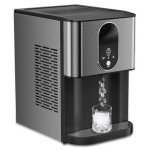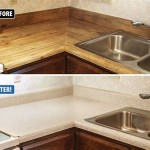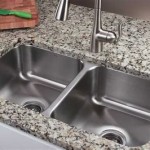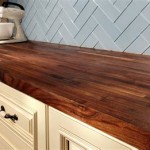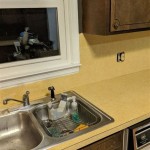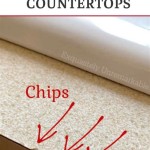Get Stains Out Of Quartz Countertop: A Comprehensive Guide
Quartz countertops have gained significant popularity in recent years due to their durability, aesthetic appeal, and relatively low maintenance requirements. However, despite their resilient nature, quartz countertops are not entirely impervious to staining. Various substances, ranging from common household spills to stubborn residues, can leave unsightly marks on the surface. Understanding the nature of quartz and the appropriate cleaning techniques is crucial for maintaining its pristine appearance and longevity. This article provides a detailed guide on how to effectively remove stains from quartz countertops, covering a range of stain types and cleaning methods.
Quartz countertops are engineered stone products composed of approximately 90-95% ground quartz and 5-10% resins, polymers, and pigments. This composition results in a non-porous surface, making it highly resistant to staining compared to natural stone options like granite or marble. However, the resin component, while contributing to the material's strength and flexibility, can be susceptible to discoloration or staining from certain substances, especially if left unattended for prolonged periods. Therefore, prompt and appropriate cleaning is essential to prevent permanent blemishes.
The key to successful stain removal lies in identifying the type of stain and selecting the appropriate cleaning agent and technique. A gradual approach, starting with the mildest cleaning solution, is recommended to avoid damaging the countertop's surface. Abrasive cleaners, harsh chemicals, and excessive scrubbing can dull the finish and potentially cause irreversible damage. This guide will outline common stain types and their corresponding removal methods, emphasizing gentle yet effective cleaning practices.
Identifying Common Stain Types on Quartz Countertops
Before attempting to remove a stain, it is important to identify its source. Different substances require different cleaning approaches. Some common stain culprits include:
*Food and Beverage Stains:
These include spills from coffee, tea, wine, juice, tomato sauce, and other pigmented foods. These stains are typically surface-level and relatively easy to remove if addressed promptly. However, highly acidic or deeply colored substances can penetrate the resin component if left unattended for extended periods. *Oil and Grease Stains:
These stains can originate from cooking oil, grease splatters, or greasy food residue. Oil-based stains tend to be more resistant to water-based cleaners and require a degreasing agent to effectively dissolve the oily residue. *Ink and Marker Stains:
Ink from pens, markers, or even printer cartridges can leave stubborn stains on quartz countertops. The difficulty of removal depends on the type of ink and the duration it has been on the surface. *Hard Water Stains:
These stains manifest as a white, chalky buildup caused by mineral deposits from hard water. They are commonly found around sinks and faucets. *Permanent Marker and Paint Stains:
These are among the most challenging stains to remove, often requiring specialized solvents and meticulous cleaning techniques. *Rust Stains:
Rust stains typically occur due to prolonged exposure to metallic objects, such as cans or metal cookware, that leave rust deposits on the surface.Effective Cleaning Methods for Quartz Countertops
Once the type of stain has been identified, the appropriate cleaning method can be selected. The following methods are arranged in order of gentleness, starting with the least abrasive and progressing to more potent solutions as needed:
*Warm Water and Mild Dish Soap:
For most everyday stains, warm water and a mild dish soap are sufficient. Apply the soapy water to the stained area, let it sit for a few minutes, and then gently scrub with a soft cloth or sponge. Rinse thoroughly with clean water and dry with a clean cloth. This method is effective for removing surface-level food and beverage spills, as well as light grease stains. *Baking Soda Paste:
For more stubborn stains, a baking soda paste can be used. Mix baking soda with a small amount of water to create a thick paste. Apply the paste to the stain, let it sit for 5-10 minutes, and then gently scrub with a soft cloth or sponge. Rinse thoroughly with clean water and dry with a clean cloth. Baking soda is a mild abrasive that can help lift stains without scratching the surface. *Rubbing Alcohol:
Rubbing alcohol (isopropyl alcohol) is effective for removing ink and marker stains. Dampen a soft cloth with rubbing alcohol and gently blot the stain. Avoid excessive rubbing, as this can spread the stain. Repeat the process until the stain is removed. Rinse thoroughly with clean water and dry with a clean cloth. *Vinegar Solution:
For hard water stains, a vinegar solution can be used. Mix equal parts white vinegar and water. Apply the solution to the stained area, let it sit for a few minutes, and then scrub with a soft cloth or sponge. Rinse thoroughly with clean water and dry with a clean cloth. Vinegar is a mild acid that can dissolve mineral deposits. However, prolonged exposure to vinegar can potentially damage the quartz surface, so it is important to use it sparingly and rinse thoroughly. *Quartz Cleaner:
Commercial quartz cleaners are specifically formulated to clean and protect quartz countertops. These cleaners are typically pH-neutral and free of harsh chemicals that can damage the surface. Follow the manufacturer's instructions for application and usage. *Degreasing Cleaners:
For stubborn oil and grease stains, a degreasing cleaner, such as a dish soap specifically designed for grease removal, can be used. Apply the degreaser to the stained area, let it sit for a few minutes, and then scrub with a soft cloth or sponge. Rinse thoroughly with clean water and dry with a clean cloth. *Hydrogen Peroxide:
For certain stains, such as coffee or tea stains that have lingered, hydrogen peroxide can be used as a bleaching agent. Apply a 3% solution of hydrogen peroxide to the stain, let it sit for 10-15 minutes, and then blot with a clean cloth. Rinse thoroughly with clean water and dry with a clean cloth. Hydrogen peroxide should be used with caution, as it can potentially lighten the color of the quartz if used excessively or on dark-colored surfaces. *Acetone:
Acetone (nail polish remover) can be used for removing permanent marker or paint stains. However, acetone is a strong solvent and should be used with extreme caution. Test acetone on an inconspicuous area of the countertop first to ensure it does not damage the surface. Apply a small amount of acetone to a clean cloth and gently blot the stain. Avoid rubbing, as this can spread the stain. Repeat the process until the stain is removed. Rinse thoroughly with clean water and dry with a clean cloth. Acetone can remove the sealant applied on the quartz countertop so re-sealing may be required *Rust Remover:
For rust stains, a commercially available rust remover specifically designed for countertops can be used. Follow the manufacturer's instructions carefully. Some rust removers contain harsh chemicals that can damage the quartz surface, so it is important to test the product on an inconspicuous area first.Preventative Measures for Stain Prevention
While effective cleaning methods are crucial for removing stains, preventing stains from occurring in the first place is even more important. The following preventative measures can help maintain the pristine appearance of quartz countertops:
*Promptly Clean Spills:
The most effective way to prevent stains is to clean up spills immediately. The longer a substance remains on the quartz surface, the greater the chance it has to penetrate the resin and cause a stain. *Use Cutting Boards and Trivets:
Always use cutting boards when preparing food to avoid scratches and stains from knives and food particles. Use trivets or hot pads under hot pots and pans to protect the surface from heat damage. *Avoid Harsh Chemicals:
Avoid using harsh chemicals, such as bleach, ammonia, and oven cleaner, on quartz countertops. These chemicals can damage the surface and cause discoloration. *Wipe Down Countertops Regularly:
Regularly wipe down countertops with warm water and mild dish soap to remove everyday dirt and grime. *Avoid Abrasive Cleaners:
Avoid using abrasive cleaners, scouring pads, and steel wool, as these can scratch the surface of the countertop. *Protect from Direct Sunlight:
Prolonged exposure to direct sunlight can cause the color of quartz countertops to fade over time. Use window coverings to protect the surface from excessive sunlight.By following these guidelines and practicing preventative measures, it is possible to maintain the beauty and longevity of quartz countertops for years to come. Regular maintenance and prompt attention to spills will help prevent stains and keep the countertop looking its best.

How To Remove Yellow Stains On Quartz Countertop Kitchen Cabinet

7 Easy Ways To Remove Common Quartz Countertop Stains Torera George

Quartz Countertop Stain

How To Remove Stains From White Quartz Countertop

7 Easy Ways To Remove Water Stains From Quartz Countertops Torera George

The Easy Guide For How To Clean Quartz Countertops Tidbits Twine

How To Remove Yellow Stains On Quartz Countertop Kitchen Cabinet

Removing Stains And Cleaning A Quartz Stone Countertop Piece

Cleaning And Caring For Quartz Countertops A Step By Guide Granite Selection

Quartz Countertop Stain
See Also

